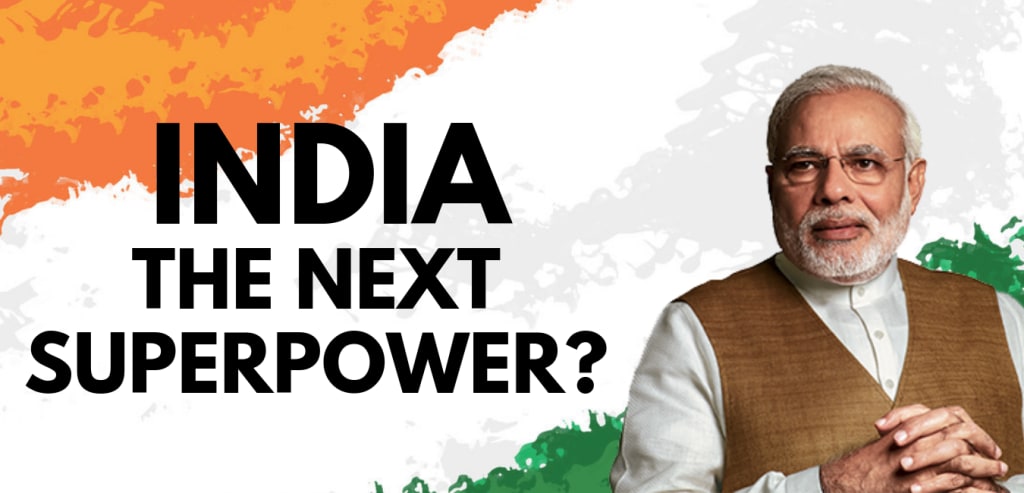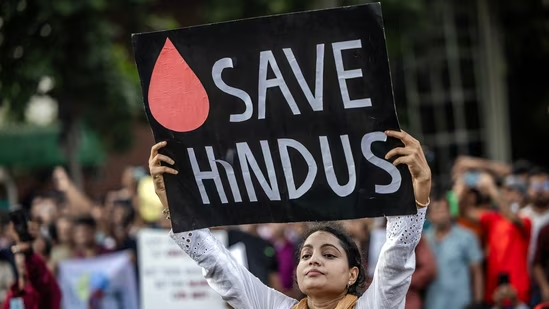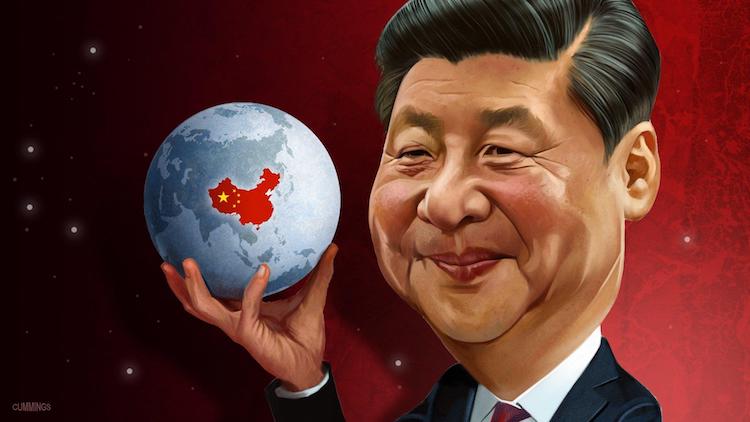The question of whether India is poised to become the next superpower is complex and depends on various factors. India is experiencing significant economic growth, technological advancements, and increasing global influence. It has a large and youthful population, a burgeoning tech sector . And is a major player in industries like pharmaceuticals, IT services, and renewable energy.
However, becoming a superpower involves more than just economic and technological prowess. It requires political stability, social development, military strength, and global influence across various spheres. India faces challenges such as income inequality, infrastructure gaps, geopolitical tensions, and regional disparities in development.

In order for India to achieve power status, a number of essential elements and tactics may prove pivotal.
- Economic Growth and Stability: Continued robust economic growth is essential. India should focus on sustainable development, industrial diversification, infrastructure development, and attracting foreign investment.
- Investment in Education and Skills: Strengthening the education system to produce a skilled workforce capable of driving innovation and technological advancement is crucial. Emphasis on research and development (R&D) can foster a knowledge-based economy.
- Technological Advancements: Investing in cutting-edge technologies, particularly in sectors like IT, biotechnology, renewable energy, and space exploration, can enhance India’s global competitiveness.
- Infrastructure Development: Improving infrastructure, including transportation, energy, and digital connectivity, is essential for supporting economic growth and attracting investments.
- Social Development: Addressing socio-economic disparities, promoting social inclusion, and ensuring access to healthcare, education, and basic amenities for all citizens are vital for sustainable development.
- Geopolitical Strategy: Developing robust diplomatic relations, playing an active role in global forums, and pursuing a balanced foreign policy can enhance India’s global influence and strategic positioning.
- Military Strength: Strengthening defense capabilities to ensure national security and strategic deterrence can contribute to India’s geopolitical stature.
- Innovation and Entrepreneurship: Fostering a culture of innovation and entrepreneurship, supporting startups and small businesses, and promoting a conducive regulatory environment can drive economic dynamism.
- Environmental Sustainability: Addressing environmental challenges through sustainable development practices, promoting renewable energy adoption.
- Global Leadership: Taking a leadership role in addressing global challenges such as climate change, healthcare access, and sustainable development can elevate India’s stature on the world stage.
Achieving superpower status is a long-term aspiration that requires concerted efforts across various domains, visionary leadership, strategic planning, and resilience in navigating challenges. India has made significant strides in recent decades .
India faces several challenges on its path to potentially becoming a superpower:
- Poverty and Inequality: Despite economic growth, India grapples with significant poverty and income inequality . Which pose challenges to sustainable development and social cohesion.
- Infrastructure Deficits: Inadequate infrastructure in areas such as transportation, energy, and digital connectivity hinders economic productivity and growth.
- Education and Skilled Workforce: Variability in educational quality and skill development gaps limit India’s ability to meet the demands of a modern economy and technological advancements.
- Political Stability and Governance: Political stability is crucial for long-term planning and effective governance. India faces challenges related to bureaucratic inefficiencies, corruption, and sometimes, policy gridlock.
- Security Concerns: Geopolitical tensions, terrorism, and internal security challenges pose threats to stability and economic progress.
- Environmental Sustainability: Rapid industrialization and urbanization have led to environmental degradation and pollution. Addressing climate change and promoting sustainable development practices are critical.
- Healthcare and Public Health: Ensuring access to quality healthcare and addressing public health challenges. Such as infectious diseases and maternal mortality, are essential for human development and economic productivity.
- Geopolitical Competition: India operates in a complex geopolitical environment, facing competition and strategic challenges from neighboring countries and global powers.
- Technological Advancement: While India has made strides in technology and innovation. There is a need to further invest in R&D, digital infrastructure, and cybersecurity to maintain competitiveness globally.
- Social Cohesion and Diversity: Managing diversity and ensuring social harmony among India’s diverse population of various cultures, languages, and religions remains a continuous challenge.
Addressing these challenges requires concerted efforts, effective policies, and investments in human capital, infrastructure, innovation, and sustainable development. While India has made significant progress in many areas, overcoming these hurdles will be crucial for achieving its potential as a global superpower.








One Comment